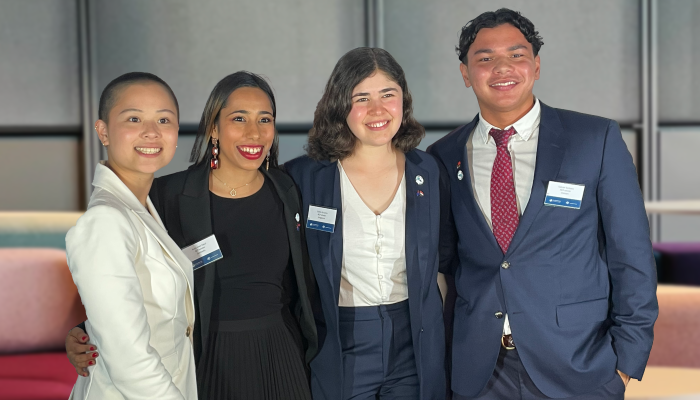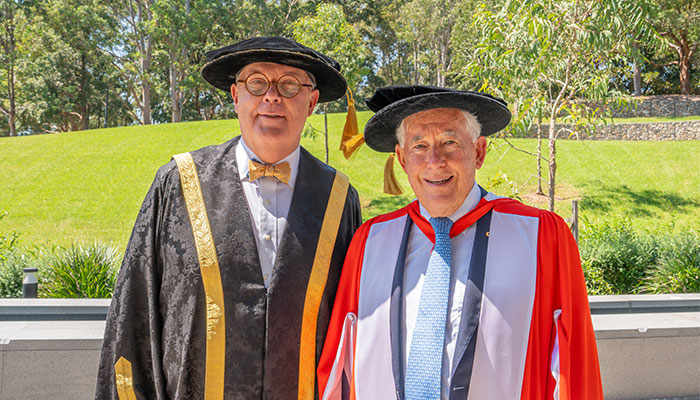Species recovery programs may spread antibiotic resistant genes to wild populations.
Endangered brush-tail rock wallabies raised in captive breeding programs carry antibiotic resistance genes in their gut bacteria and may be able to transmit these genes into wild populations, according to research published May 22 in the open access journal PLOS ONE by Michelle Power and colleagues from Macquarie University.
Brush-tail rock wallabies are currently being raised in species recovery programs and restored to the wild to bolster populations of this endangered species. Here, researchers found that nearly half of fecal samples from wallabies raised in these programs contained bacterial genes that encode resistance to streptomycin, spectinomycin and trimethoprim.
None of these genes were detected in samples from five wild populations of wallabies. The authors add, “How these genes made their way into the wallaby microbes is unknown, but it seems likely that water or feed may have acted as a conduit for bacteria carrying these genes.”
Previous research shows that proximity to humans can increase animals’ exposure to antibiotic resistance genes and the organisms that carry them. Antibiotic resistant bacteria have been reported in the wild from chimpanzees in Uganda, Atlantic bottlenose dolphins and a wide range of fish, birds and mammals.
According to the researchers, their findings highlight the potential for genes and pathogens from human sources to be spread. Power says, “We found that antibiotic resistance genes from human pathogens have been picked up by endangered rock wallabies in a breeding program, and may spread into the wild when the wallabies are released.”
The funding for this work was provided by the Australian Research Council in collaboration with Office of Environment and Heritage and the Australian Museum, and the Ian Potter Foundation. Through its grants, the Ian Potter Foundation seeks to encourage excellence and support Australia’s talent: the visionaries, social entrepreneurs, scientists, academics and researchers, artists and teachers, and those who dedicate themselves to bettering our communities for the benefit of all.
Citation: Power ML, Emery S, Gillings MR (2013) Into the Wild: Dissemination of Antibiotic Resistance Determinants via a Species Recovery Program. PLoS ONE 8(5): e63017. doi:10.1371/journal.pone.0063017 http://dx.plos.org/10.1371/journal.pone.0063017
Endangered brush-tail rock wallabies raised in captive breeding programs carry antibiotic resistance genes in their gut bacteria and may be able to transmit these genes into wild populations, according to research published May 22 in the open access journal PLOS ONE by Michelle Power and colleagues from Macquarie University.
Brush-tail rock wallabies are currently being raised in species recovery programs and restored to the wild to bolster populations of this endangered species. Here, researchers found that nearly half of fecal samples from wallabies raised in these programs contained bacterial genes that encode resistance to streptomycin, spectinomycin and trimethoprim.
None of these genes were detected in samples from five wild populations of wallabies. The authors add, “How these genes made their way into the wallaby microbes is unknown, but it seems likely that water or feed may have acted as a conduit for bacteria carrying these genes.”
Previous research shows that proximity to humans can increase animals’ exposure to antibiotic resistance genes and the organisms that carry them. Antibiotic resistant bacteria have been reported in the wild from chimpanzees in Uganda, Atlantic bottlenose dolphins and a wide range of fish, birds and mammals.
According to the researchers, their findings highlight the potential for genes and pathogens from human sources to be spread. Power says, “We found that antibiotic resistance genes from human pathogens have been picked up by endangered rock wallabies in a breeding program, and may spread into the wild when the wallabies are released.”
The funding for this work was provided by the Australian Research Council in collaboration with Office of Environment and Heritage and the Australian Museum, and the Ian Potter Foundation. Through its grants, the Ian Potter Foundation seeks to encourage excellence and support Australia’s talent: the visionaries, social entrepreneurs, scientists, academics and researchers, artists and teachers, and those who dedicate themselves to bettering our communities for the benefit of all.
Citation: Power ML, Emery S, Gillings MR (2013) Into the Wild: Dissemination of Antibiotic Resistance Determinants via a Species Recovery Program. PLoS ONE 8(5): e63017. doi:10.1371/journal.pone.0063017 http://dx.plos.org/10.1371/journal.pone.0063017



